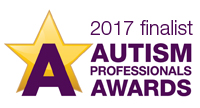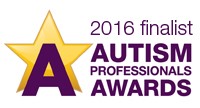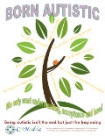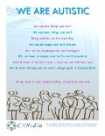Information For Parents
Coping With Challenging Children
(Children with an Autism Spectrum Disorder)
Understanding children’s behaviour may not be that simple but it doesn’t always have to be challenging. There could be many reasons why children behave and react in a challenging way and they may be unaware of their own behaviours. We hope the information provided will be helpful to parents who find their child’s behaviour challenging.
The information provided focuses on children with Autism Spectrum Disorder (ASD) but it can also be helpful to other conditions including ADHD and learning difficulties.
ASD is one of the major neuro-developmental conditions. If a parent has a child with ASD there is a higher chance that one or both parents has ASD too as the condition can be genetically inherited. Asperger’s Syndrome is a hidden disability and is not always obvious initially.
ASD is more common in boys / men but this does not mean that you should discount the possibility in girls / women too. It is less likely to be diagnosed in girls as girls do better socially and cope better with life compared to boys. Girls also don’t normally have the same level of behavioural problems compared to boys.
Autism is a development disorder. Children don’t grow out of it once they enter into adulthood. There is no “cure” and it is a lifelong condition. ASD is not a mental illness but children (whether diagnosed or not) will probably go through life experiencing difficulties as they encounter communication problems, ASD affects how they relate to other people, and also how they see and make sense of the world around them.
Children with autism can be extremely sensitive to specific sensory stimuli. This varies depending on the individual. It is important to think about the senses when talking to a child. Children with ASD may also have more than one form of Neurodiversity; they can overlap each other which may lead to other difficulties for them.
A child with ASD can easily be overloaded with sensory information in busy places, such as a shopping area, where there are lots of people in close proximity. The way in which this sensory overload is dealt with depends on the individual. It can trigger a fight or flight reaction.
When a situation goes wrong for a child with ASD, it may be confusing for them as they’re trying to make sense of what has happened and where it has gone wrong as they lack understanding of it. It is always helpful to retreat to a quieter area too to talk through the situation with the child to help them make sense of the situation. Please note that not every child with ASD may find direct confrontation difficult, so do remember to give them a choice.
Anxiety is a real difficulty for lots of children with ASD. It affects a child psychologically and physically. Anxiety may affect the mind and the body for a child with ASD. It can affect a child’s day to day life. When they are stressed they take less information in as they may not be functioning very well. Their brain just stops working to its full potential.
This can take a lot out of a child. It can be very tiring and draining and can take them a couple of days to get back to normal. A child who struggles with anxiety can be affected differently to children who normally work well with understanding and rules.
Some children may experience a meltdown; this can have a big impact on their lives. The child may experience rumbling before a meltdown or a trigger (fight or flight). After a meltdown the child may need space and time to recover as it can take hours or days to get better. The child that is recovering may find it hard to get out of bed in the morning as they have no energy, they may be withdrawn, want to hide away, lack confidence or be confused.
Children that do have a diagnosis, no matter how intelligent they are, can still feel misunderstood and vulnerable. Children can find it hard to fit in to society and be accepted – no matter how hard they try they seem to fail. Children still get situations wrong and make mistakes. Every child is different and most children would have received help and support for the ASD, but there are still children that will go undetected into adulthood without a diagnosis. Only some children with a diagnosis are on medication to help support their ASD.
As a parent you are important too so it is important for you to take a break and learn to recognise when you need to, as children with ASD can be very challenging especially if their stress levels and anxiety levels are high.
This document is a guide only, everyone is different, difficulties vary from person to person, these guidelines are here to inform your judgment not replace it.
SOME HELPFUL TIPS
DO use the child’s name first to get their attention and then use short sentences e.g. Sam please sit down or Sam please come down stairs.
DO when speaking to a child get down to their level and keep your language simple and direct and be clear to minimise misunderstanding or misinterpretation.
DO allow the child extra time to process information and respond when they are spoken to. If you interrupt them then they may have to start again or become overwhelmed.
DO check for understanding when speaking to the child. Children may not be able to read between the lines, be clear e.g. yes or no, left or right, black or white.
DO use simple, closed and direct questions. Use visual cues to increase understanding e.g. photos, symbols, writing, drawings, objects etc.
DO keep choices to two until you are sure the child can make the right choice, due to problems with understanding.
DO explain to the child and keep them informed at all times so the child knows what is expected to happen; the child may not have very good flexible thinking and may find it hard to understand what is going on.
DO keep good communication between you and the child and let them know what is happening by keeping them up-dated on what’s going to happen in the future.
DO have information written down i.e. A timetable may be helpful as the child can take their own time to process the information. Use visual aids too as children with ASD are very visual.
DO have information written down i.e. A timetable may be helpful as the child can take their own time to process the information. Use visual aids too as children with ASD are very visual.
DO keep good routines.
DO have an area so the child has got somewhere to go and relax as they need time out away from stressful situation or time to destress after coming home from school / work.
DO reduce the child’s stimuli in their environment to help bring down their stress and anxiety levels.
DON’T ignore the child and make them feel unwelcome, they may be having a very difficult day. They may need time out after school to relax.
DON’T expect them to understand body language, gestures, tone of voice or facial expressions. Be clear in what you say.
DON’T assume that inappropriate behaviour is deliberate; it may be the only way that a child can cope with a stressful situation.
DON’T use abstract ideas and phrases due to the likelihood of literal interpretation.
DON’T take lack of eye contact as a sign of rudeness; it can be hard to process a lot of information as the face has a lot of detailed information or the child may find eye contact unpleasant.
DON’T think they are deliberately being rude or disrespectful if they talk inappropriately or on seemingly irrelevant topics. This may be likely to increase in times of stress and if a child’s brain isn’t functioning normally.
DON’T ignore a child when things have gone wrong between you and them as they may be very stressed, use calm communication and allow them time to chill out.
DON’T get ignored; be patient, understand the child as they may not be able to help their inappropriate behaviour.
DON’T shout, stay calm. It is important that you take a break yourself and recognise when you need to do so.
Download
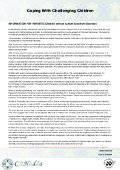 Click to download this page as a poster.
Click to download this page as a poster.
ADDITIONAL INFORMATION
Dystalk
Talks on topics about ADHD, Dyscalculia, Dyslexia, Dyspraxia and Early Years from Professors, Head and SEN Teachers.
Web Site: www.dystalk.com
IPSEA
Independent Parental Special Education Advice. IPSEA is a registered charity offering free and independent advice to parents of children with special educational needs in England and Wales.
Web Site: www.ipsea.org.uk
